Best Practices Articles

The Strategic Imperative of Channel Management Software for Manufacturing
TL;DR
Modern manufacturing success depends on synchronizing disparate sales teams and dealer networks through a single source of truth. Advanced channel management software eliminates the friction between internal production goals and external partner performance. By centralizing deal registration, lead distribution, and real-time inventory data, manufacturers can ensure total sales alignment, drive predictable revenue, and dominate competitive global markets.
Key Takeaways
- Resolves channel conflict.
- Enables deal protection.
- Unifies direct and indirect teams.
For the modern global manufacturer, relying on a single sales model is no longer sustainable. Both direct and indirect sales channels are not merely necessary; they are strategically essential. The direct sales team is crucial for managing high-level executive relationships and closing complex, high-value accounts. Simultaneously, the indirect channel—the vast network of distributors, value-added resellers (VARs), and system integrators—provides the scalable local coverage, specialized installation expertise, and geographic reach required for true market dominance. This reliance on a hybrid sales model is what drives market share.
Yet, where these two powerful sales forces meet, a destructive phenomenon known as channel conflict often erupts. This conflict is a corrosive force, rapidly eroding partner trust, leading to customer confusion, and creating a massive blind spot in the sales pipeline that undermines the manufacturer’s entire growth strategy. This high-growth, high-complexity environment demands a technological solution. It must be impartial. It must govern the whole sales ecosystem and ensure fair and transparent engagement rules. This is the central purpose and strategic value of implementing specialized Channel Management Software for Manufacturing.
The Anatomy of Channel Conflict and Its Cost
Channel conflict occurs when direct sales representatives and indirect partners compete for the same potential customer or deal. This competition is fierce because the stakes are high: commissions, market credit, and customer ownership.
The High-Cost Indicators of Sales Friction
When conflict is left unchecked, it manifests in several costly ways. Direct sales teams may view indirect partners as low-control, lower-margin distractions. Conversely, partners often see the direct sales force as an aggressive internal competitor that steals deals by undercutting partner-protected pricing or claiming high-value accounts late in the sales cycle. This environment of distrust poses significant business challenges. For the manufacturer, the cost of this friction is substantial:
- Partner Disengagement: Partners stop investing time and money in generating leads and selling your product, often choosing to prioritize a competitor's portfolio instead.
- Pipeline Visibility Blackout: Without centralized tracking, the manufacturer loses all visibility into the deals being worked by the channel, severely impacting accurate sales forecasting.
- Customer Experience Deterioration: Customers receive mixed and confusing messages about pricing, support, and product roadmaps from competing internal and external sales teams.
A clear set of rules and an unbiased system are therefore required to solve this problem. The system must be the final, non-negotiable arbiter for all deals. It must govern territories, lead distribution, and deal with registration. Implementing a robust Channel Management Software for Manufacturing creates this essential, impartial system.
Channel Management Software for Manufacturing as the Unifying Technology
The foundation of modern channel management is Partner Relationship Management (PRM) technology. A truly powerful Channel Management Software for Manufacturing is built on this foundation. It provides a single, unified platform where all channel partners can access resources, register deals, and collaborate with the direct team. This approach is not a minor IT upgrade; it is an organizational transformation. The software formalizes the rules of engagement, ensuring that everyone operates from the same set of guidelines. It makes the rules machine-enforced, not subject to human interpretation or individual bias.
Key Features for Conflict Resolution and Alignment
The central features of advanced Channel Management Software for Manufacturing work together specifically to eliminate or pre-empt conflict:
- Impartial Deal Registration and Protection: The deal registration module is the most critical feature for resolving channel conflict. It operates on a simple, foundational principle: the first party (whether a direct salesperson or an indirect partner) to register a new opportunity is granted protection for that deal. This protection ensures that no other sales entity within the manufacturer's network can compete for that specific piece of business. This is a deal "air-traffic control." The Channel Management Software for Manufacturing provides the digital timestamp and non-negotiable proof of ownership. This security offers partners assurance that their investment in prospecting and sales efforts will not be compromised. This trust-building mechanism encourages greater upfront investment from partners and a more profound commitment to the manufacturer's brand. It is an indispensable feature for any Channel Management Software for Manufacturing.
- Automated Lead Distribution and Management (LDM): The LDM module automatically routes leads to the correct sales agent—either the direct team or a specific partner—based on predefined, policy-driven business logic. The system enforces this logic, which may be based on geography, vertical industry, or product specialization. For instance, a lead for a small business in a specific state may be automatically routed to a local distributor. In contrast, a high-dollar enterprise lead is routed to the direct sales team. This automation eliminates human bias and ensures that leads are handled by the best-equipped team, preventing a competitive fight for early-stage opportunities. A unified platform driven by the Channel Management Software for Manufacturing prevents disputes before they even start. It ensures the right partner is working the right opportunity, every time.
- Comprehensive Incentive and Funds Management: Sales incentives, rebates, and Market Development Funds (MDF) are often sources of tension and administrative chaos. A robust Channel Management Software for Manufacturing automates the entire process. This includes MDF claims, approvals, and payout calculations. By providing transparency into the incentive structure and automating the calculation of compensation, the system removes doubt and the potential for dispute. Partners can see precisely what they have earned and why, instantly reducing administrative load and increasing satisfaction. This financial clarity is a significant benefit of modern Channel Management Software for Manufacturing.
Achieving Operational Optimization and Sales Forecasting Accuracy
The primary goal of a Channel Management Software for Manufacturing is to enhance the entire sales ecosystem's efficiency and predictability. This is achieved through data centralization and process automation.
Unified Pipeline and Forecasting
Before implementing a Channel Management Software for Manufacturing, a manufacturer's sales forecast often consists of two separate, non-comparable documents: the direct team's CRM report and a manually compiled spreadsheet of partner deals. This creates a "black hole" of visibility into the partner pipeline. The software solves this by centralizing all sales activity—both direct and indirect—into a single, unified system.
- Real-Time Data Access: Direct sales leadership gains a complete, accurate, real-time view of all revenue opportunities, including those actively being worked by the channel.
- Improved Inventory Management: For manufacturing organizations, accurate forecasting is critical. By understanding the actual demand signaled through the partner pipeline, the operations team can better align production schedules and inventory levels, thereby reducing carrying costs and preventing stockouts. The predictive power offered by advanced Channel Management Software for Manufacturing is a game-changer for operations.
Enhanced Partner Enablement
High-performing partners need constant support, training, and resources. A core component of a Channel Management Software for Manufacturing is the Partner Portal. This portal serves as the single source of truth for all channel resources:
- Centralized Content Library: Partners can instantly access up-to-date marketing collateral, technical specifications, competitive analysis guides, and sales presentations.
- On-Demand Training and Certification: The platform provides training modules, quizzes, and certification paths, ensuring partners possess the specialized product knowledge necessary to effectively sell complex manufactured goods.
- Collaborative Co-Selling Tools: The software facilitates co-selling by providing shared dashboards for deal progress. This allows the direct sales team to offer specialized support—like product demos or engineering expertise—without taking over the deal, transforming competition into productive teamwork. This shared goal is a key driver of the high ROI delivered by Channel Management Software for Manufacturing.
The Strategic Value of Digital Transformation in Manufacturing Sales
The adoption of Channel Management Software for Manufacturing is a critical step in a manufacturer's broader digital transformation strategy. It’s about leveraging technology to change how the business operates and competes fundamentally.
From Manual Processes to Machine-Driven Efficiency
Historically, managing an extensive channel network was a highly manual, administrative burden. Tasks such as MDF approvals, incentive calculations, and training distribution were slow, error-prone, and required excessive manual oversight.
- Automation of Routine Tasks: The Channel Management Software for Manufacturing automates these routine, high-volume tasks. This frees up channel managers to focus on strategic activities, such as partner recruitment, business planning, and market strategy.
- Seamless Integration: Modern Channel Management Software for Manufacturing integrates seamlessly with existing core systems, such as Customer Relationship Management (CRM) tools like Salesforce and Enterprise Resource Planning (ERP) systems. This integration ensures a smooth, bidirectional flow of critical data (like leads, orders, and inventory) across the entire organization, eliminating data silos that slow down decision-making.
Fostering a Superior Partner Experience
In today's competitive landscape, the partner experience is as necessary as the customer experience. Partners are independent businesses, and they will naturally prioritize the manufacturer that is easiest to work with, provides the highest level of security for their investment, and offers the most accessible support.
A modern Channel Management Software for Manufacturing achieves this through a personalized and engaging portal experience:
- Single Sign-On (SSO) Access: Partners access everything they need—training, deals, funds, and leads—through one easy login.
- Mobile Accessibility: Many channel activities, such as service work and installations, happen in the field. The best Channel Management Software for Manufacturing provides mobile access to essential tools and deal information, ensuring partners can work efficiently from any location.
- Personalized Dashboards: The platform provides customized dashboards tailored to the partner’s tier, specialization, or geography, displaying only the most relevant leads, training, and incentive programs. This targeted information ensures the partner’s time is spent on high-value activities.
Implementation and Measuring ROI
Successfully implementing a Channel Management Software for Manufacturing is a process that requires both technological execution and strategic organizational change.
A Phased Implementation Approach
A phased rollout minimizes disruption and maximizes adoption.
- Phase 1: Foundation and Deal Registration: Begin by establishing the core Partner Relationship Management (PRM) platform and immediately implementing the deal registration and protection module. This instantly addresses the primary source of channel conflict and builds partner trust.
- Phase 2: Enablement and Training - Roll out the Partner Portal, including training, certification, and content libraries. Use this phase to engage and educate partners on the new process and the manufacturer’s product lines.
- Phase 3: Automation and Incentives: Integrate the software with CRM/ERP systems. Launch the automated lead distribution and the comprehensive incentive and funds management modules. This phase delivers the highest administrative efficiency and ROI. The robust Channel Management Software for Manufacturing should be the source of truth for all compensation.
Calculating the Return on Investment (ROI)
The ROI of a Channel Management Software for Manufacturing is significant and is measured across three primary areas:
- Revenue Growth: Directly measured by the increase in deal registrations, lead conversion rates, and overall channel-driven revenue. When partners feel protected, they sell more.
- Cost Reduction: Measured by the decrease in administrative time spent managing MDF/rebate claims, processing disputes, and answering partner inquiries. The automation provided by the Channel Management Software for Manufacturing reduces overhead.
- Operational Efficiency: Measured by improvements in sales forecasting accuracy and the reduction in inventory carrying costs due to better demand signal management. This is particularly valuable in the manufacturing sector.
The Future of Manufacturing Sales is Aligned and Automated
The complexities facing manufacturers—from global supply chain disruptions to a rapid shift in customer buying behaviors—will only continue to increase. The ability to manage a distributed, complex sales channel is no longer a competitive advantage; it is a prerequisite for survival. The next evolution of sales in the manufacturing sector will be driven by intelligent automation.
Future versions of Channel Management Software for Manufacturing will leverage advanced AI and machine learning to offer proactive recommendations, such as:
- Predictive Lead Scoring: Automatically scoring leads based on the likelihood of conversion by a specific partner type, ensuring perfect lead-partner matching.
- Incentive Optimization: Using data to automatically suggest the most effective incentive programs for different partner segments to maximize sales without overspending.
Conclusion: Turning Friction into Focused Growth
Channel conflict is often an unavoidable issue when running a high-growth hybrid sales model. However, allowing this conflict to erode partner trust and confuse customers is a strategic failure. The correct solution is not to eliminate one channel. Instead, the manufacturer must provide a single, neutral technological framework. This framework must enforce control and transparency through automation. This framework is a channel management software for Manufacturing.
The implementation of a unified Channel Management Software for Manufacturing is an investment in the strategic integrity of the entire organization. It transforms the sales organization from a contentious arena into a focused, high-performance revenue engine. By automatically managing leads, guaranteeing deal registration protection, and enabling co-selling, the platform channels the natural competitive energy of both teams toward one common objective: maximizing the manufacturer’s market share. This strategic transformation enables friction to be converted into focused growth and sustainable success.
Frequently Asked Questions
What is the primary benefit of channel management software in manufacturing?
Channel management software serves as a centralized hub that synchronizes internal production goals with external dealer activities. By providing real-time visibility into inventory, deal pipelines, and partner performance, it eliminates channel conflict and ensures that every stakeholder is working toward a unified revenue target across the entire ecosystem.
How does this software prevent conflict between internal sales and partners?
Conflict prevention is achieved through automated deal registration and transparent lead distribution protocols. By allowing partners to "claim" and protect their opportunities within the portal, the software creates a clear boundary between direct and indirect efforts, fostering trust and preventing the brand from competing against its own network.
Can channel management software integrate with my existing ERP and CRM?
Modern enterprise platforms are designed with API-first architectures to ensure seamless integration with legacy ERP systems, such as SAP or Oracle, and CRMs such as Salesforce. This connectivity enables bidirectional data flow, ensuring that sales forecasts in the CRM reflect the actual production capacities recorded in the ERP.
How does the software improve the speed of the manufacturing sales cycle?
Speed is increased by removing manual hurdles like email-based quote approvals and paper-intensive rebate claims. With self-service portals, partners can access instant pricing, technical specifications, and co-branded marketing materials, allowing them to respond to customer inquiries in minutes rather than waiting days for internal manufacturer support.
Does this technology help in managing global distributor networks?
Global management is a core competency of these platforms, offering multi-currency, multi-language, and region-specific compliance features. Manufacturers can tailor their portals to meet local market regulations while maintaining a global standard for brand identity, ensuring that a distributor in Europe receives the same quality of support as one in Asia.
What role does data play in optimizing partner development funds (MDF)?
Data-driven platforms track the ROI of every dollar spent on partner marketing and development. Instead of guessing which campaigns work, manufacturers can use performance analytics to see which partners use funds most effectively, enabling the strategic reallocation of budgets toward activities that demonstrably drive pipeline growth and closed-won revenue.
How do I ensure my partners actually adopt and use the new software?
Adoption is secured by prioritizing a "partner-first" user experience that simplifies their daily workflows. When the software delivers immediate value—such as faster commissions, easier lead access, and instant technical support—partners naturally gravitate toward the platform, turning it from a corporate requirement into an essential tool for their business success.
Best Practices Guides
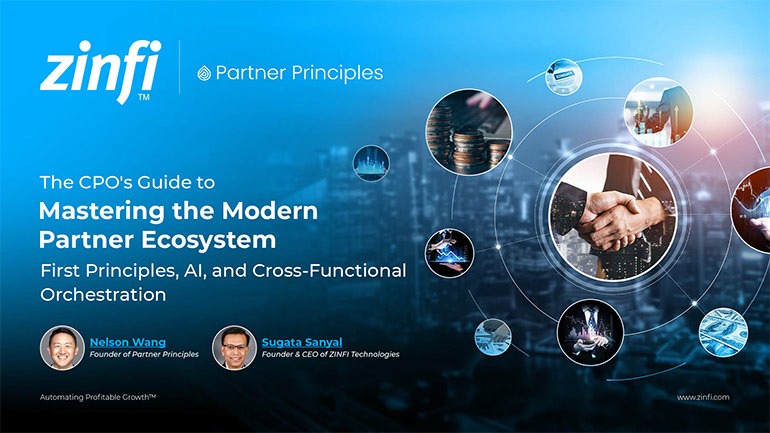 First Principles Drive Modern Partner Ecosystem Success Best Practices
First Principles Drive Modern Partner Ecosystem Success Best PracticesDownload for FREE
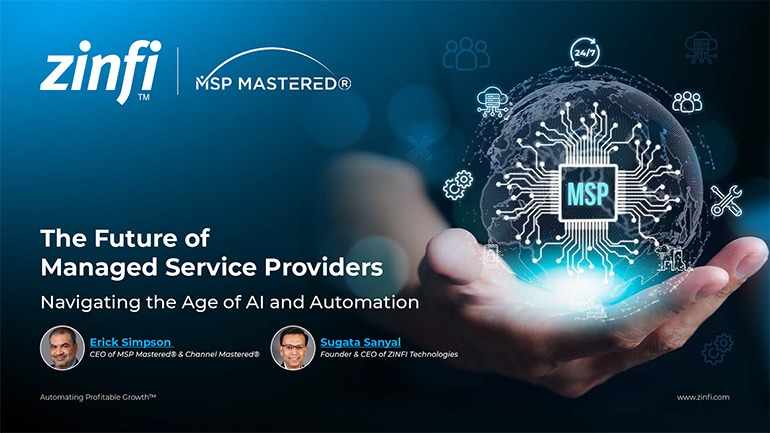 The Future of Managed Service Providers: Navigating the Age of AI and Automation
The Future of Managed Service Providers: Navigating the Age of AI and AutomationDownload for FREE
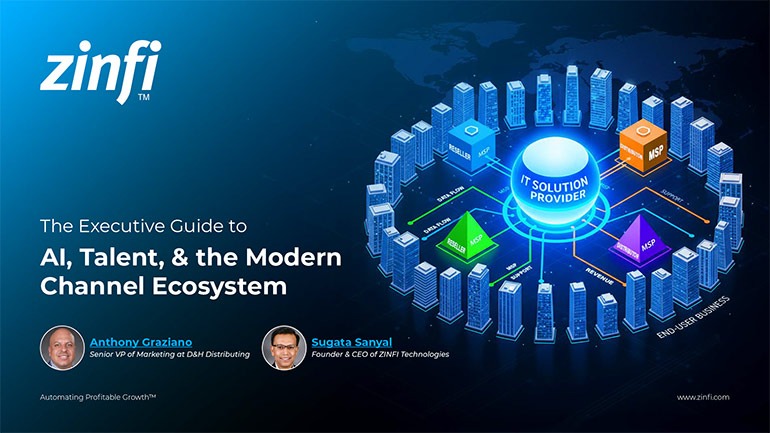 Modernizing Channel Marketing: AI and Ecosystem Enablement Best Practices
Modernizing Channel Marketing: AI and Ecosystem Enablement Best PracticesDownload for FREE
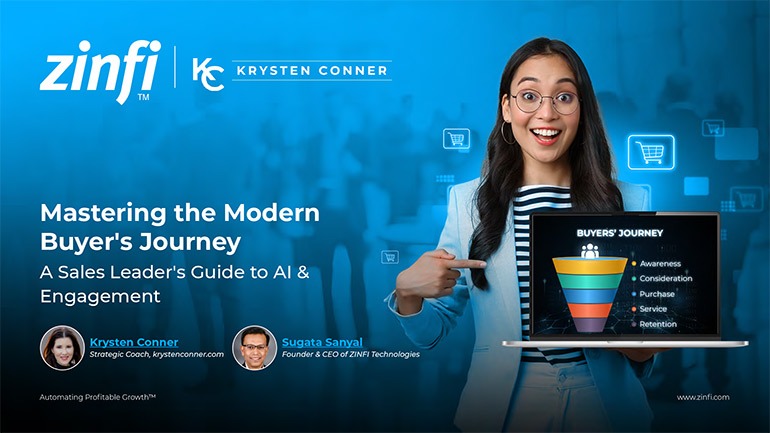 The Channel’s Shift to Partner-Led With AI Best Practices
The Channel’s Shift to Partner-Led With AI Best PracticesDownload for FREE
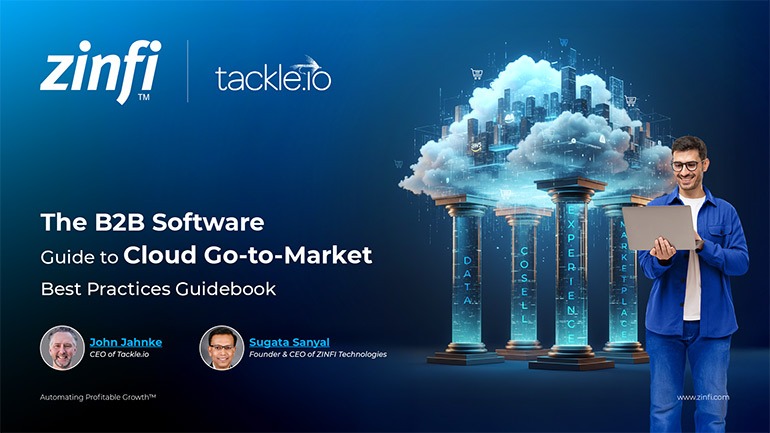 Hyperscalers, ISVs, and AI: Shaping the Future of B2B Software Distribution
Hyperscalers, ISVs, and AI: Shaping the Future of B2B Software DistributionDownload for FREE
 Definitive Guide to a Partner Ecosystem-First Sales Strategy
Definitive Guide to a Partner Ecosystem-First Sales StrategyDownload for FREE
 The Partner-Led Digital and AI Transformation Best Practices
The Partner-Led Digital and AI Transformation Best PracticesDownload for FREE
 Startup Talent Recruitment: Hiring Missionaries, Not Mercenaries
Startup Talent Recruitment: Hiring Missionaries, Not MercenariesDownload for FREE
 The Future of Partner Relationship Management with AI in Partnerships
The Future of Partner Relationship Management with AI in PartnershipsDownload for FREE
 Cybersecurity for the 99%: Strategies from the Frontline
Cybersecurity for the 99%: Strategies from the FrontlineDownload for FREE
 Mastering Partner Relationships: A Strategic Approach to Business Growth
Mastering Partner Relationships: A Strategic Approach to Business GrowthDownload for FREE
 Mastering Partner Relationship Management: Keys to SaaS Channel Success
Mastering Partner Relationship Management: Keys to SaaS Channel SuccessDownload for FREE